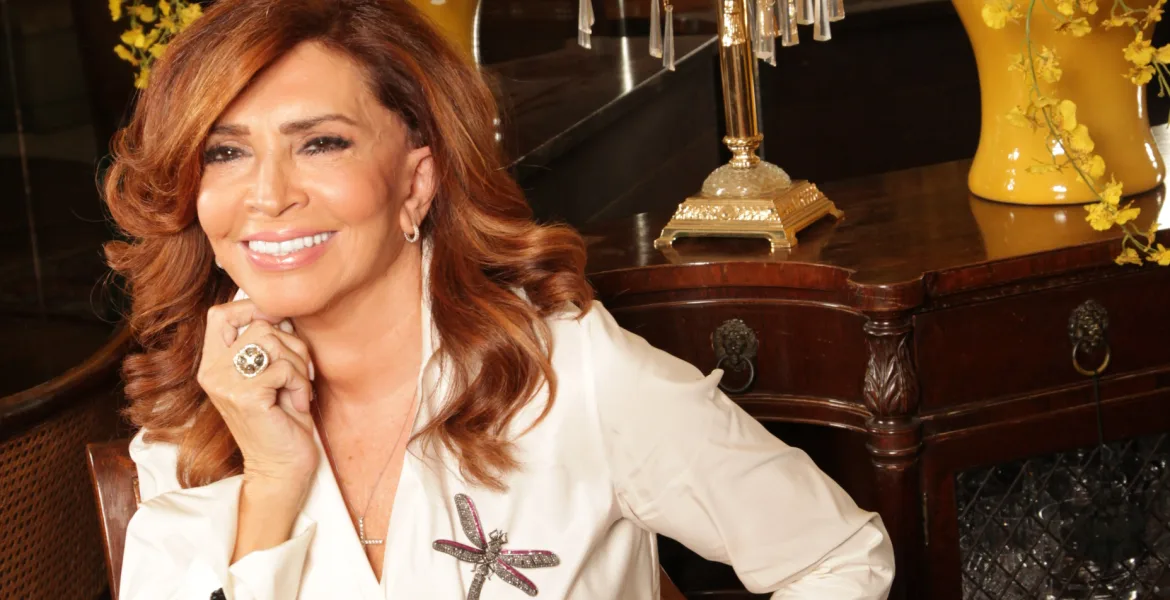Mimi Denise, a captivating actress whose talent shines brightly on stage and screen, has left an indelible mark on the entertainment world. With a passion for the arts that ignited during her college years, Mimi's journey into acting was serendipitous, marked by a remarkable blend of dedication and natural flair. Her diverse academic pursuits, including a major in History and Literature, seamlessly complemented her theatrical training, making her a multifaceted storyteller.
Mimi's career has been characterised by a rich tapestry of experiences, from her early days on the stage to her forays into directing and translating acclaimed works. Her impressive portfolio includes a wide range of international productions, each selected with a keen eye for messages that resonate with her soul.
As the founder of the Drama School Central Stage, Mimi Denise continues to nurture young talent and explore new horizons in the world of drama. Her dedication to her craft and the unwavering support of her family, especially her daughter, form the bedrock of her illustrious journey. A luminary in the world of performing arts, Mimi Denise remains an inspiration to aspiring artists everywhere.

How did your involvement in acting began, and what led you to choose this path?
I've always tended art, even back in college. I used to write, direct, and act. I was fortunate enough to be chosen as the lead actress by Vasilis Georgiadis in "Ungermann” TV series. That's how everything started. Life shows us the way.
Could you tell us about your studies at the American College in Agia Paraskevi and your admission to the Department of Byzantine and Modern Greek Studies at the National and Kapodistrian University of Athens? Was it your own decision, or did your circle influence you?
The American College was my school, just as it had been my mother's and then my daughter's. Beyond the exceptional teachers, it's a very democratic school that encourages kids to follow their dreams and talents. During my school years, I decided to enroll in the School of Philosophy because I loved History and Literature. Simultaneously studying theatre, I felt like I was in my natural environment.
How did you combine your undergraduate education with your training in acting at Giorgos Theodosiadis' Drama School?
Easily! These go hand in hand - Arts and Literature. And I've used them all in my career.
Which theatrical pieces have you translated and adapted, and which have conveyed messages you kept throughout your professional and personal life?
If I were to list them all, it would take many pages. There are over 50! My favourite international works include "Amadeus," "Dangerous Liaisons," "Bent," "Rose," "Anna Karenina," "The King and I," and comedies by Feydeau and Labiche. The theatrical pieces you choose always carry messages that represent you.
Could you tell us a bit about the theatrical plays you've written, such as "Theodora," "Me, Laskarina," "Penelope Delta Meets Magas Dog," and "Smyrna My Beloved"? What was the audience's response to these works?
Also, "From Smyrna to Thessaloniki," which will be performed at the Thessaloniki Concert Hall, tells the story of refugees and Jews in Constantinople from 1923 to 1940. The audience loved all of them, and they became great successes in the Greek theatre. Among the highlights are "Smyrna My Beloved" and "From Smyrna to Thessaloniki." People really love Greek themes. And because I have a major in history from my studies, I enjoy engaging with these subjects and bringing out their unknown aspects. I see the audience's enthusiasm for such subjects.
What is your experience in directing, and who has the more challenging role, the actor or the director?
I have directed many works. Since 2003, I have directed every year. The director's role requires a more holistic approach. The actor focuses on their role. However, the actor gets to experience the audience's love, which is wonderful.
How did the idea behind founding the Drama School "Central Stage" come about, and what experiences and collaborations emerged from establishing the school?
It stemmed from my need to help young children and encounter new ideas. Unfortunately, in recent years, due to performances and the significant film “Smyrna My Beloved”, I haven't been able to devote time to the Drama School. In the past, I invited notable international artists such as Olympia Dukakis, the lead actor Peter Brook, and others to teach.
Could you tell us a few words about the successful movie and mini-series on Antenna that you created based on your work "Smyrna My Beloved" and the message you wanted to convey?
It's a film that we were fortunate enough to make into an international success. We had great contributors and actors, and that's how we achieved it with the production company Tanweer, D. Samiotis, G. Karantinakis, Fotini Dimou, and Martin Sherman. I wanted to highlight the global forgotten subject of the catastrophe (referring to the Great Fire of Smyrna), and we succeeded.
Which significant artists have you collaborated with in your career, and what have you gained?
You gain something from all the collaborations, and there are many. Voutsinas, Volanakis, Margaritis, Dimos, Georgiadis, Andreou, Michaelidis, and many other foreign and Greek artists are equally great.
What is the next challenge you would like to face in your career?
To adapt my theatrical play "From Smyrna to Thessaloniki" into a TV series.
Does family, especially your daughter, play an important role in your decisions?
The most important role. Family comes above all. It is the foundation of my life. My daughter is a kind girl with good judgment. She is always by my side, providing support and forming an opinion. She is the treasure of my life.

